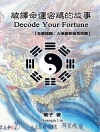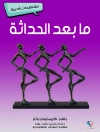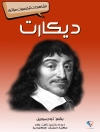Nine masterful essays on Dante’s Divine Comedy and his political theology by one of today’s leading Italian philosophers.
Among today’s Italian philosophers, Massimo Cacciari is perhaps the most assiduous commentator of Dante. Philosophy, Mysticism, and the Political collects all of Cacciari’s writings on Dante to this day, from his masterful analysis of St. Francis of Assisi in Dante’s Paradiso and Giotto’s frescoes to a new consideration of Dante’s ‘European’ idea of empire as a federation of nations, peoples, and languages. Cacciari does not force Dante into any philosophical straitjacket. Rather, he walks with Dante, takes notes, asks questions, raises issues, and tries to understand the Divine Comedy in Dante’s terms. Cacciari approaches Dante’s Ulysses and the theologico-philosophical vertigo of Paradiso not as a critic but from the point of view of a faithful, assiduous, perceptive, sometimes perplexed, and sometimes worshipful reader. Cacciari’s analysis shows once more that Dante does not belong to the past. Dante creates his own age and stays with us whenever we wish to follow his path.
İçerik tablosu
Introduction: Nostalgia for the Empire, or Dante’s Metapolitics
Alessandro Carrera
1. Double Portrait: Saint Francis of Assisi in Dante and Giotto
2. The ‘Sin’ of Ulysses
3. Dante’s Divine Perception (Aesthesis Theia)
4. The Concrete Ineffable: The Last Cantos of the Commedia
5. Dante’s Intellectual Love
6. Latin and Vernacular in the De vulgari eloquentia
7. On Dante’s Political Theology
8. A Brief Note on the German Reception of Dante
9. Schelling’s Dante
Notes
Chapter Sources
Index
Yazar hakkında
Massimo Cacciari is an Italian philosopher, politician, and public intellectual. He is Professor Emeritus of Philosophy at the Università Vita-Salute San Raffaele in Italy. His many books include The Withholding Power: An Essay on Political Theology (translated by Edi Pucci). Alessandro Carrera is Professor of Italian Studies and World Cultures and Literatures at the University of Houston. His many books include Fellini’s Eternal Rome: Paganism and Christianity in the Films of Federico Fellini. Giorgio Mobili is a poet and translator and teaches Italian and Spanish at California State University, Fresno. He is the author of Irritable Bodies and Postmodern Subjects in Pynchon, Puig, Volponi.












